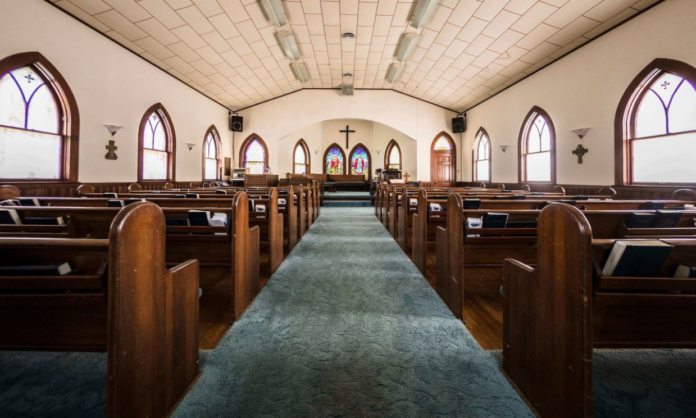As news stories go, a report on the final Sunday Mass in a hospital chapel may seem to be a run-of-the-mill event. For the people who attended such regular Masses, it’s anything but run-of-the-mill – it matters.
On the first Sunday of this month, a ‘final’ Mass was celebrated in the chapel attached to St Mary’s Hospital in Mullingar (now the Cluain Lir Centre), with Fr Paul Connell (Bishop-elect of Ardagh & Clonmacnois diocese) having the honour of the final blessing.
The Mass had been a weekly event in the chapel for more than 110 years, but it is no more. Across the country, as the falling number of vocations to the priesthood takes effect and the age-profile of serving priests increases, leading to more retirements, there are more and more ‘final’ Masses.
Some years ago, we attended one in a Meath town, also in a chapel attached to a hospital. With outside Mass-goers banned by ‘health and safety’ rules (and this was before Covid), the small Sunday Mass stuttered on towards its obvious conclusion when the regular celebrant died – a fine man at a fine age. And so another one bit the dust.
Provisional results of the 2021 Census showed that most people in this country identify as Catholics. Not all are practicing their faith and while it’s true to say that churches in some cities are showing falling attendances at Sunday Masses, others – most notably in rural areas – show no such fall.
There is, then, still a demand for Sunday Masses but now there are fewer priests available to celebrate them. As pressure increases, some tough decisions are having to be made and it’s clear that many more will have to be taken.
The amalgamation of parishes and the ‘sharing’ of Masses around parishes within a diocese are becoming more regular decisions by bishops who are trying to perform loaves-and-fishes miracles with dwindling resources.
So, perhaps it’s no surprise that Masses such as that at St Mary’s are casualties. A priest cannot be in two places at the same time, and the smaller ones will always be sacrificed first.
‘As globalisation cuts deep, the things that are ‘of Ireland’ and are of importance to the Irish seem to be easily disposed of’
But it’s such a pity because Masses such as that seen in St Mary’s for more than 110 years are so special, certainly to those who went along, week after week, and said their prayers and received Communion in what were always special and intimate Masses. Their loss is just one more sign of a diminishing culture.
As globalisation cuts deep, the things that are ‘of Ireland’ and are of importance to the Irish seem to be easily disposed of. In a desperate bid to be seen to be all things to all people, parts of Irish culture are being washed away. Every year, it seems, we have less and less to hand on to the next generation, be they of the faith or not.
A rearguard action by lovers of the Irish language, backed by government support, is at least having some success, and more people are interested in having at least some Irish, even if they are not fluent in the language.
But what was central to Irishness was the code of ethics that came from religion. Our national code of ethics identifies very strongly with Christianity – do no harm, treat others the way you would like to be treated, don’t take what is not yours, etc. Certainly those are not the preserve of Christianity, but in Ireland their roots lie there.
Tieing all of those together was community, and very often at the centre of that was and is the Sunday Mass, for Church-goers at least.
So when a regular Sunday Mass event comes to a close – such as happened at St Mary’s a couple of weeks ago – another part of who we are disappears. On its own, maybe this does not make a huge difference, but put it alongside all the other losses Irish society is experiencing and it poses the question we cited earlier: exactly what are we passing on to the next generation?
Is it our own, Irish culture, tradition and ethics, or is it one we buy cheaply from globalisation and secularisation?
And if so, what will the real cost be to this nation?

